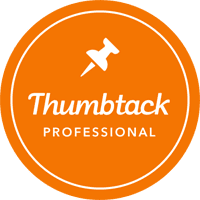Local SEO is a form of search engine optimization (SEO) that focuses on optimizing a website to rank for local searches. It involves a variety of techniques, such as optimizing for local keywords, building local citations, creating content around local topics, and more. Local SEO is important for businesses who want to attract customers in their area, as it helps them show up higher in search results for related keywords.
Local SEO works by optimizing your website, content, and other online assets for local searches. This includes things such as ensuring your website is properly optimized for local search engines and directories, optimizing your content for local keywords, and building local citations and backlinks. Additionally, it is important to keep track of your local rankings on search engine result pages (SERPs) and use this data to inform your optimization efforts. Ultimately, local SEO helps businesses get their products and services in front of local customers who are searching for them.
Google uses a variety of factors to determine the ranking of search results. It looks at the relevancy of content to the user’s query, the quality of the content, the user’s location, their search history, and hundreds of other factors. Google’s algorithms are constantly changing and evolving to provide the best possible results for each search. Additionally, Google looks at the number of times the page is shared on social media, the number of times the page is linked to from other websites, the presence of keywords, and the quality and quantity of reviews.
When optimizing a website for local SEO, there are several factors that matter. These include having a well-optimized website, having the correct location information available on the website, making sure the website is listed in local directories, having accurate and up-to-date content, and making sure the website has good reviews.
Local SEO is an important tool for small businesses as it can help you get noticed and increase your visibility in local searches. By optimizing your website for local search, you can attract more customers and increase your revenue. Local SEO helps to ensure your business stands out in local searches, giving you an edge over competitors. Additionally, optimizing your website for local search will help you rank higher in search engine results pages, allowing potential customers to find you more easily. Local SEO can also help you build relationships with customers, as well as enhance your online presence.
Local SEO is an important part of any business’s online presence. It helps businesses appear in local searches, allowing customers that are looking for a business in their area to find them more easily. Local SEO also helps businesses build trust with customers, by providing accurate and up-to-date content about the business.
Google uses a variety of factors to determine the order of local search results. These include the relevance of the content on the website to the keyword being searched, the quality of the website, the popularity of the website, the speed of the website, and how well the website is optimized for local search.
Improving your local search presence is all about optimizing your website for local search engines and directories. Start by making sure your business name, address, and phone number (NAP) are consistent and up to date across all channels. Additionally, make sure you’re listed on popular local directories such as Google Business Profile, Yelp, and Yellow Pages. Additionally, create content on your website that’s relevant to your local area and include local keywords in your titles and descriptions. Finally, build local links by reaching out to local businesses and publications, and encourage customers to leave reviews. Doing all these things will help you build a strong local presence and improve your ranking in local search results.
Yes, there is a guide to local SEO. Local SEO is all about optimizing your website and content to show up in local search engine results. This can be done by making
sure your website is optimized for local keywords, adding a local address and phone number to your website, creating content that includes local information, and claiming and optimizing your local business directory listings. Additionally, you should make sure your website is mobile-friendly and that your business is listed on review websites. Doing all of these things should help you show up higher in local search engine results.
Local SEO content is content created specifically to help local businesses increase their visibility in search engine rankings. It includes things like optimizing website content and metadata for local terms, creating content that targets local customers and using local citations to build trust and authority with search engines. Additionally, it can involve creating content tailored to local events and news. Local SEO content should be optimized for both search engine bots and users so that it can effectively reach both local customers and potential customers.
Optimizing your business for local SEO involves several key steps. First, you’ll need to make sure your business is properly listed on major local directories such as Google My Business, Yelp, and other relevant directories. Additionally, you’ll want to ensure your website is optimized for local search by including your location in your title tags and meta descriptions. You’ll also want to make sure your website contains relevant, local-centric content that provides value to users. Finally, you’ll want to make sure you’re engaging with local customers on social media and engaging in local link building efforts. By taking these steps, you’ll be well on your way to optimizing your business for local SEO.
Creating a local SEO strategy involves researching the local market for your business, understanding the relevant keywords that your customers are searching for and optimizing your website for those keywords, optimizing your website for local searches, creating content that is tailored to local audiences, and building links from local directories and websites. Additionally, you should also consider optimizing your Google My Business listing, creating local social media accounts and engaging with local customers. Finally, you should track and analyze your local SEO efforts to ensure that your strategy is effective.
Optimizing your local web pages for the search engine results pages (SERPs) is essential for both SEO and user experience. Start by doing keyword research to determine which terms your potential customers are searching for, and then use those terms throughout your content. Next, make sure to include your location in the site’s title, meta descriptions, and headings. Also, ensure that you’re optimizing for local social media channels and adding local business listings to directories and review sites. Finally, consider setting up a Google My Business page and using structured data markups for better visibility in search engine results.
Search Engine Optimization (SEO) is the practice of optimizing webpages and websites to rank higher in the organic search results of major search engines like Google and Bing. SEO is an ongoing process of creating content, optimizing the content for search, and constantly monitoring and tweaking the content to ensure it’s working. Local SEO is SEO that is specifically tailored to a local area. It focuses on optimizing for local keywords and phrases, as well as making sure that your website is listed in local directories and listings. Local SEO also involves optimizing for local reviews, as these are key for gaining visibility in local search results.
One of the most effective ways to target local customers is to focus on local SEO. This involves optimizing your website for local searches, such as adding your location to the page titles and meta descriptions, as well as adding geo-specific keywords to your content. You can also list your business on online directories, such as Google My Business and Yelp, and use local advertising platforms, such as AdWords and Facebook Ads, to target users in your area. Additionally, you can use local influencers to spread word-of-mouth recommendations and create content that is tailored to your local audience.
The most important factors of local SEO include having an up-to-date and optimized website, creating local listings on major search engines, optimizing titles and descriptions, optimizing content for local keywords, setting up a Google My Business page, and obtaining local reviews. Additionally, having a presence on social media, building and maintaining relationships with local influencers, and optimizing website content for voice search can all help to further improve local SEO.




